Related Research Articles
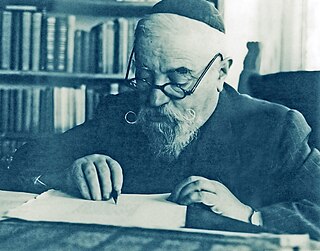
Umberto Cassuto,also known as Moshe David Cassuto,was an Italian historian,a rabbi,and a scholar of the Hebrew Bible and Ugaritic literature,in the University of Florence,then at the University of Rome La Sapienza. When the 1938 anti-Semitic Italian racial laws forced him from this position,he moved to the Hebrew University of Jerusalem.

Litvaks or Lita'im are Jews with roots in the territory of the former Grand Duchy of Lithuania. The term is sometimes used to cover all Haredi Jews who follow an Ashkenazi,non-Hasidic style of life and learning,whatever their ethnic background. The area where Litvaks lived is referred to in Yiddish as ליטעLite,hence the Hebrew term Lita'im.

The Khmelnytsky Uprising,also known as the Cossack–Polish War,or the Khmelnytsky insurrection,was a Cossack rebellion that took place between 1648 and 1657 in the eastern territories of the Polish–Lithuanian Commonwealth,which led to the creation of a Cossack Hetmanate in Ukraine. Under the command of hetman Bohdan Khmelnytsky,the Zaporozhian Cossacks,allied with the Crimean Tatars and local Ukrainian peasantry,fought against Polish domination and Commonwealth's forces. The insurgency was accompanied by mass atrocities committed by Cossacks against the civilian population,especially against the Roman Catholic and Ruthenian Uniate clergy and the Jews,as well as savage reprisals by Jeremi Wiśniowiecki,the voivode of the Ruthenian Voivodeship.

Slutsk is a town in Minsk Region,Belarus. It serves as the administrative center of Slutsk District,and is located on the Sluch River 105 km (65 mi) south of the capital Minsk. As of 2024,it has a population of 60,056.

Olyka is a rural settlement in Lutsk Raion,Volyn Oblast,western Ukraine. It is located east of Lutsk on the Putylivka Rriver. Its population is 3,032.
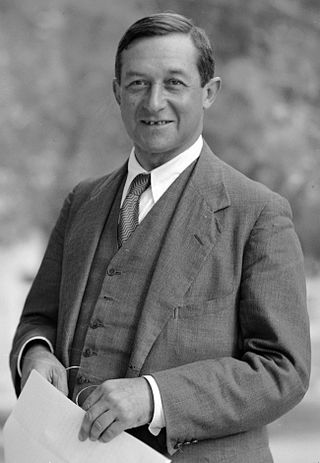
Judah Leon Magnes was a prominent Reform rabbi in both the United States and Mandatory Palestine. He is best remembered as a leader in the pacifist movement of the World War I period,his advocacy of a binational Jewish-Arab state in Palestine,and as one of the most widely recognized voices of 20th century American Reform Judaism. Magnes served as the first chancellor of the Hebrew University of Jerusalem (1925),and later as its President (1935–1948).
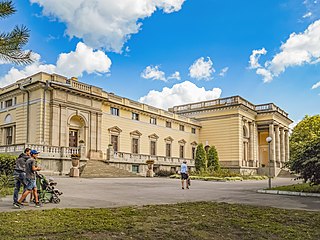
Nemyriv is a historic city in Vinnytsia Oblast (province) in Ukraine,located in the historical region of Podolia. It was the administrative center of former Nemyriv Raion (district). Population:11,421.

Lakhva is a village in Luninets District,Brest Region,Belarus. It serves as the administrative center of Lakhva selsoviet. It has a population of approximately 2,100.
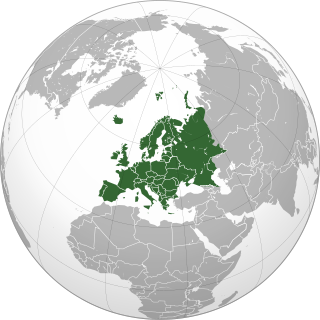
The history of the Jews in Europe spans a period of over two thousand years. Jews,a Semitic people descending from the Judeans of Judea in the Southern Levant,began migrating to Europe just before the rise of the Roman Empire. Although Alexandrian Jews had already migrated to Rome,and with few Gentiles undergone Judaization in few occasions. A notable early event in the history of the Jews in the Roman Empire was the 63 BCE siege of Jerusalem,where Pompey had interfered in the Hasmonean civil war.
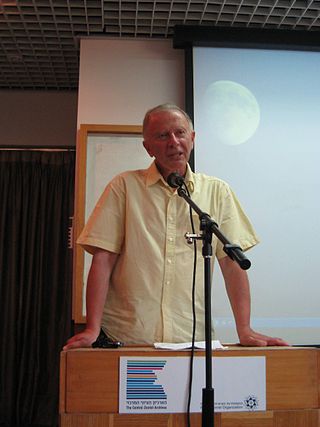
Robert Solomon Wistrich was a scholar of antisemitism,considered one of the world's foremost authorities on antisemitism.

Samuel Joseph Fuenn,also known as Rashi Fuenn and Rashif (רשי״ף),was a Lithuanian Hebrew writer,scholar,printer,and editor. He was a leading figure of the eastern European Haskalah,and an early member of Ḥovevei Zion.

Yitzchak Yaacov Reines,was a Lithuanian Orthodox rabbi and the founder of the Mizrachi Religious Zionist Movement,one of the earliest movements of Religious Zionism,as well as a correspondent of Theodor Herzl.

Adam S. Ferziger is an intellectual and social historian whose research focuses on Jewish religious movements and religious responses to secularization and assimilation in modern and contemporary North America,Europe and Israel. Ferziger holds the Samson Raphael Hirsch Chair for Research of the Torah with Derekh Erez Movement in the Department of Jewish History and Contemporary Jewry at Bar-Ilan University,Ramat Gan,Israel. He is a senior associate at the Oxford Centre for Hebrew and Jewish Studies and is co-convener of the annual Oxford Summer Institute for Modern and Contemporary Judaism. He has served as a visiting professor/fellow in College of Charleston (2017),Wolfson College,University of Oxford,UK (2013),University of Sydney,New South Wales,Australia (2012),and University of Shandong,Jinan,China (2005). In 2011,he received Bar-Ilan's "Outstanding Lecturer" award. Ferziger has published articles in leading academic journals of religion,history,and Jewish studies and is the author or editor of seven books including:Exclusion and Hierarchy:Orthodoxy,Nonobservance and the Emergence of Modern Jewish Identity;Orthodox Judaism –New Perspectives,edited with Aviezer Ravitzky and Yoseph Salmon;and most recently Beyond Sectarianism:The Realignment of American Orthodox Judaism,which was the winner of a 2015 National Jewish Book Award.
Congregation Beth Israel is a Modern Orthodox synagogue in Berkeley,California,in the United States. Established in 1924 as the Berkeley Hebrew Center,it traces its origins to the First Hebrew Congregation of Berkeley,founded in 1909. It was Berkeley's first synagogue and remains its oldest. Lay-led for four decades,it hired its first rabbi,Saul Berman,in 1963.
Shaul Stampfer is a researcher of East European Jewry specializing in Lithuanian yeshivas,Jewish demography,migration and education.

The Włodawa Synagogue is a former Orthodox Jewish congregation and synagogue complex,located at 5-7 Czerwonego Krzyża Street,in Włodawa,in the Lublin Voivodeship of Poland. The synagogue complex comprises the Włodawa Great Synagogue,the Small Synagogue or Beit midrash,and a Jewish administrative building,all now preserved as a Jewish museum.
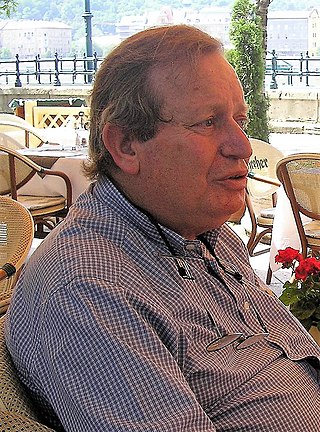
Israel Bartal,is Avraham Harman Professor of Jewish History,member of Israel Academy of Sciences (2016),and the former Dean of the Faculty of Humanities at Hebrew University (2006–2010). Since 2006 he is the chair of the Historical Society of Israel. He served as director of the Center for Research on the History and Culture of Polish Jewry,and the academic chairman of the Project of Jewish Studies in Russian at the Hebrew University of Jerusalem. Professor Bartal was the co-director of the Center for Jewish Studies and Civilization at Moscow State University. Bartal received his PhD from Hebrew University in 1981. He focuses his research on the history of the Jews in Palestine,the Jews of Eastern Europe,the Haskalah Movement,Jewish Orthodoxy and modern Jewish historiography.

Jewish paper cutting is a traditional form of Jewish folk art made by cutting figures and sentences in paper or parchment. It is connected with various customs and ceremonies,and associated with holidays and family life. Paper cuts often decorated ketubbot,Mizrahs,and ornaments for festive occasions. Paper cutting was practiced by Jewish communities in both Eastern Europe and North Africa and the Middle East for centuries and has seen a revival in modern times in Israel and elsewhere.
Gershon David Hundert was a Canadian historian of Early Modern Polish Jewry and Leanor Segal Professor at McGill University.
Mikhail Kizilov. He works on the history of Crimea in the Late Middle Ages and Modern Times and on Jews,Khazars and Karaism in Eastern Europe,especially in Crimea,Poland,Ukraine and Lithuania.
References
- ↑ Teller, Adam. "About". Adam J. Teller, Ph.D. Retrieved 4 September 2024.
- ↑ "Adam Teller". AAJR – 100 Years of Jewish Research. American Academy for Jewish Research. Retrieved 4 September 2024.
- ↑ "Adam J Teller". Researchers@Brown. Brown University. Retrieved 4 September 2024.
- ↑ Teller, Adam (2003). Living Together: The Jewish Quarter in Poznań during the Seventeenth Century. Magnes Press. p. 142. ISBN 965-493-154-0 . Retrieved 4 September 2024.
- ↑ Teller, Adam (2016). Money, Power, and Influence in Eighteenth-Century Lithuania: The Jews on the Radziwiłł Estates. Merkaz Zalman Shazar. Retrieved 4 September 2024.
- ↑ Teller, Adam (2016). Money, Power, and Influence in Eighteenth-Century Lithuania: The Jews on the Radziwiłł Estates. Stanford University Press. ISBN 9780804798440 . Retrieved 4 September 2024.
- ↑ Adam, Teller (2020). Rescue the Surviving Souls: The Great Jewish Refugee Crisis of the Seventeenth Century. Princeton University Press. p. 408. ISBN 9780691161747 . Retrieved 4 September 2024.
- ↑ "Honorable Mention". Kulczycki Book Prize in Polish Studies. Association for Slavic, East European, and Eurasian Studies. Retrieved 4 September 2024.
- ↑ "Rescue the Surviving Souls". Jewish Book Council. Retrieved 4 September 2024.
- ↑ "Adam J Teller Publications". Researchers@Brown. Brown University. Retrieved 4 September 2024.
- ↑ "Homepage". The YIVO Encyclopedia of Jews in Eastern Europe. Retrieved 4 September 2024.
- ↑ "Early Modern Workshop: Resources in Jewish History". Fordham Research Commons. Fordham University. Retrieved 4 September 2024.
- ↑ "Homepage". Museum of the History of Polish Jews. Retrieved 4 September 2024.
- ↑ "The Pinkasim Collection The International Repository of Communal Ledgers". The National Library of Israel. Retrieved 4 September 2024.
- ↑ Rojanski, Rachel (2020). Yiddish in Israel: A History. Indiana University Press. p. 338. ISBN 9780253045140 . Retrieved 4 September 2024.
- ↑ "Kehillat Sulam Ya'akov". KBY Congregations Together. Retrieved 4 September 2024.
- ↑ "TBZ Homepage". Independent Jewish Shul in Brookline, MA. Temple Beth Zion. Retrieved 4 September 2024.
- ↑ "Koleinu: Temple Beth Zion" (PDF). Koleinu. Fall/Winter 2020: 10–11. 2020. Retrieved 4 September 2024.